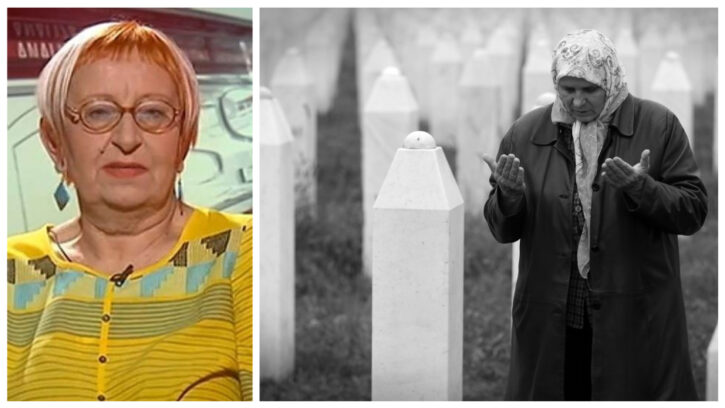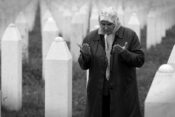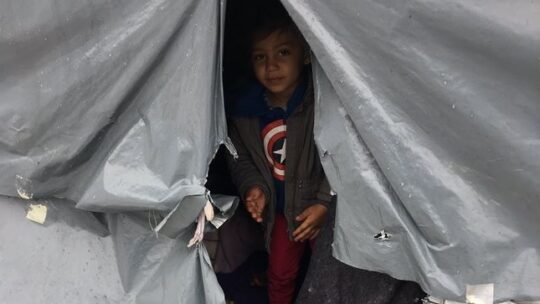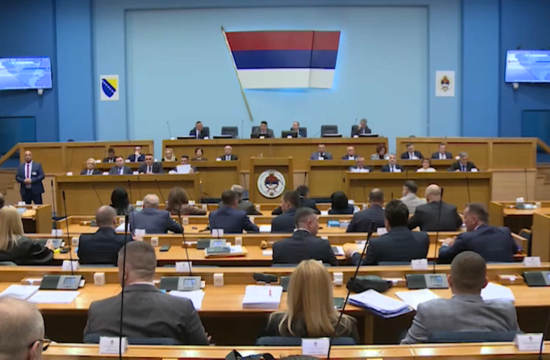
Late Hatidza Mehmedovic could only see her husband and children who were killed in the Srebrenica genocide in her dreams, so she wanted to sleep as long as possible, her friend, sociologist and genocide researcher Janja Bec-Neumann, told N1 on Tuesday.
More than 8,000 Muslim men and boys were executed after Bosnian Serb troops overran the eastern enclave of Srebrenica in July 1995. The massacre is considered Europe’s worst slaughter since World War II and has been declared an act of genocide by two international courts.
Mehmedovic’s ‘Mothers of Srebrenica’ association fought for the truth about the carnage to be maintained, for the victims to be found and for the perpetrators to be punished.

She lost her two sons, Almir, 18 and Azmir 21, her husband Abdulah 44, two brothers and other family members in the massacre but she nevertheless returned to Srebrenica in 2003 to live in the family house alone.
The 65-year-old died on June 22, 2018, in a hospital in Sarajevo after a long illness.
Together with former Chief Prosecutor at the International Criminal Tribunal for the Former Yugoslavia (ICTY), Richard Goldstone and an Italian former student who worked on his master's degree on the topic of genocide at the Sarajevo University, Sergio Paini, Bec-Neumann published an In Memoriam for Mehmedovic in a Serbian newspaper.
“Hatidza Mehmedovic was my friend, it is a personal reason, my personal reason for the ‘In memoriam’ which was published in the ‘Danas’ newspaper a few days after her death in 2018,” Bec-Neumann said.
Bec-Neumann said that Mehmedovic was a lecturer at her courses in 2008 which “got a lot of attention, drew huge interest from the students.”
“You young people have to take over what I am doing and what we are doing, when we are not there anymore, you have to continue,” Bec-Neumann remembered Mehmedovic as saying.
Mehmedovic lectured within the course ‘War crimes, genocide and memories’.
Bec-Naumann said that the Srebrenica mother could only see her husband and children who were killed in Srebrenica “in her dreams, and she wanted her sleep to last as long as possible, to be with them longer.”
She explained that Sergio Paini was working on a masters degree on Mehmedovic in 2002 in Sarajevo, and he was the first to get his degree on the subject of genocide. He introduced Mehmedovic to Bec-Neumann.
She said that no war was as well documented as the war in Bosnia during the 1990s, and explained that it was “above all because of the International Criminal Tribunal.”
Bec-Neumann cited Goldstone, who told her that “if it wasn’t for the Tribunal, those who died, especially on the territory of Republika Srpska, would still be ripped up by beasts.”
She called the international court “a big step forward for the region.”
“One of the causes of that cruelty was that those who committed it thought it would never be found out. That did not happen, it was found out. We need to accept that the entire world, the better part of it, accepts it,” she said, referring to the rampant denial of the genocide in the region.
“A time will come when people from different sides can sit together and listen to each other, ask, try to tell their stories and comment. That will happen, it is basically already happening. When there are strong discussions on what happened, that is the third phase of going through the trauma,” she said.
“That is not bad at all, as everything is better than remaining silent,” she concluded.







